Wesley Stace is an English folk/pop singer-songwriter and author who has used the stage name John Wesley Harding. Under his legal name, he has written four novels. He is also an occasional university teacher and the curator of Wesley Stace's Cabinet of Wonders.
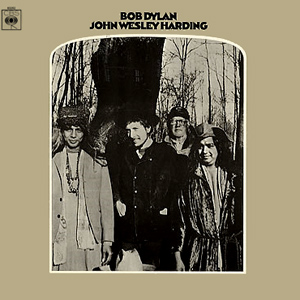
John Wesley Harding is the eighth studio album by the American singer-songwriter Bob Dylan, released on December 27, 1967, by Columbia Records. Produced by Bob Johnston, the album marked Dylan's return to semi-acoustic instrumentation and folk-influenced songwriting after three albums of lyrically abstract, blues-indebted rock music. John Wesley Harding was recorded around the same time as the home recording sessions with The Band known as The Basement Tapes.

Thirteen Day Getaway is the second and final studio album by the punk rock band CIV. It was released on April 7, 1998, on Atlantic Records. The album is dedicated to Raybeez.
Chris Von Sneidern is an American singer-songwriter. He earned a cult following with a string of indie releases during the 1990s and 2000s.

Here Comes the Groom is an album by folk-rock singer John Wesley Harding, released in 1990. Harding called the backing band the Good Liars. It included Pete Thomas and Bruce Thomas of the Attractions. Not surprisingly, Here Comes the Groom has a feel similar to classic Elvis Costello. Harding's articulate and biting vocal delivery, also reminiscent of Costello, retains a good dark sense of humor.
David Lewis is a British scholar who is Professor of Anthropology and Development at the London School of Economics and Political Science (LSE).
"John Wesley Harding" is a song by American singer-songwriter Bob Dylan that appears as the opening track on his 1967 album of the same name.

Closed Captioned Radio is the second album by the American alternative rock band the Bogmen, released in 1998. It sold around 10,000 copies. The band broke up after its release, in part due to the effects of alcoholism.

John Wesley Harding's New Deal is an album by the folk-rock singer-songwriter John Wesley Harding, released on February 13, 1996, on Forward Records, an imprint of Rhino Records focused on releasing albums by new artists.

Trad Arr Jones is a tribute album to Nic Jones by British-American folk singer John Wesley Harding. The album consists of Harding's covers of Jones' arrangements of eleven traditional songs, hence the album's title, which is short for "Traditional, Arranged by Jones". It is very different from Harding's previous albums, partly because Harding used to dislike English folk music like Jones'.

Bricks and Blackouts is an album by the American band Gaunt, released in 1998. The album was not promoted by Warner Brothers Records, due to huge layoffs in their marketing division. Gaunt supported the album with a North American tour.
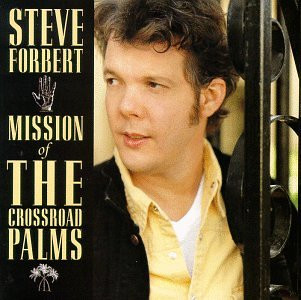
Mission of the Crossroad Palms is an album by the American musician Steve Forbert, released in 1995. It was a commercial disappointment.

Why We Fight is an album by the English musician John Wesley Harding, released in 1992. As with many of Harding's albums, the title is a reference to Frank Capra's work; Harding had considered using the Kinks homage Give the People What I Want as the title. Harding described the album's sound as "folk noir". Harding supported the album by touring with Barenaked Ladies and Mare Winningham.
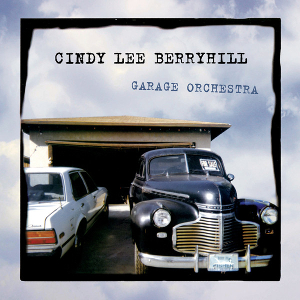
Garage Orchestra is an album by the American musician Cindy Lee Berryhill, released in 1994. It marked a turn from the folk material of Berryhill's past, to a more orchestral pop sound. Berryhill was working in a San Diego bookstore when Cargo Music suggested that she record an album. Berryhill subsequently named her band after the album.
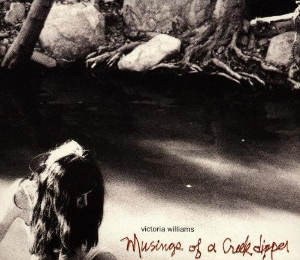
Musings of a Creek Dipper is an album by the American musician Victoria Williams, released in 1998. The album cover artwork is a photograph of Williams in an Oxnard, California, creek. Williams supported the album with a short tour, which included playing the Calgary Folk Music Festival.
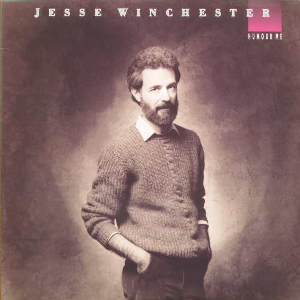
Humour Me is an album by the American-Canadian musician Jesse Winchester, released in 1988. It was his first album in seven years. Humour Me was nominated for a Juno Award, in the "Best Roots or Traditional Album" category. "Well-a-Wiggy" had been a minor hit for the Weather Girls.

Big White Lies is the second album by the American musician Chris Von Sneidern, released in 1994. He supported the album with a North American tour.

One Left Shoe is the solo debut album by the American musician Steve Poltz, released in 1998. The first single was "Silver Lining". Poltz, at the time, expected to record again with the Rugburns, and considered One Left Shoe to be a "sensitive" folk excursion.

Txai is an album by the Brazilian musician Milton Nascimento, released in 1990 in Brazil and in 1991 in the United States. It is dedicated to Aliança dos Povos da Floresta, a Brazilian environmental organization. The album title translates roughly to "comrade" in the Kashinawa language. Nascimento supported the album with a North American tour. Txai peaked at No. 1 on Billboard's World Albums chart. It was nominated for a Grammy Award for "Best World Music Album".

Punch the Big Guy is an album by the American musician John Stewart, released in 1987. The album title was suggested by Stewart's son. Stewart supported the album with a North American tour. Punch the Big Guy was a commercial disappointment, selling around 25,000 in its first six months of release.
















